| Carl Jung | |
|---|---|
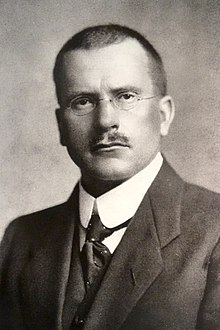 A portrait of Jung, unknown date | |
| Born |
Carl Gustav Jung 26 July 1875 Kesswil, Thurgau, Switzerland |
| Died |
6 June 1961 (aged 85) Küsnacht, Zürich, Switzerland |
| Alma mater | University of Basel |
| Known for |
Analytical psychology Psychological types Collective unconscious Complex Archetypes Anima and animus Synchronicity Shadow Extraversion and introversion |
| Spouse(s) | Emma Jung |
| Scientific career | |
| Fields | Psychiatry, psychology, psychotherapy, analytical psychology |
| Institutions | Burghölzli, Swiss Army (commissioned officer in World War I) |
| Doctoral advisor | Eugen Bleuler |
| Influences | Bleuler, Freud, Kant, Nietzsche, Schopenhauer |
| Influenced | Joseph Campbell, Hermann Hesse, Erich Neumann, Ross Nichols, Alan Watts, Jordan Peterson, Terence McKenna, Gaston Bachelard |
| Signature | |
 | |
Carl Gustav Jung (/j??/; German: ; 26 July 1875 – 6 June 1961) was a Swiss psychiatrist and psychoanalyst who founded analytical psychology.
His work has been influential in not only psychiatry but also anthropology, archaeology, literature, philosophy, and religious studies. As a notable research scientist based at the famous Burghölzli hospital, under Eugen Bleuler, he came to the attention of the Viennese founder of psychoanalysis, Sigmund Freud. The two men conducted a lengthy correspondence and collaborated on an initially joint vision of human psychology.
Freud saw in the younger man the potential heir he had been seeking to carry on his "new science" of psychoanalysis. Jung's research and personal vision, however, made it impossible for him to bend to his older colleague's doctrine and a schism became inevitable. This division was personally painful, and was to have historic repercussions lasting well into the modern day. Jung was also an artist, craftsman and builder as well as a prolific writer. Many of his works were not published until after his death and some are still awaiting publication.
Among the central concepts of analytical psychology is individuation—the lifelong psychological process of differentiation of the self out of each individual's conscious and unconscious elements. Jung considered it to be the main task of human development. He created some of the best known psychological concepts, including synchronicity, archetypal phenomena, the collective unconscious, the psychological complex, and extraversion and introversion.
Contents
Biography
Early years
Childhood family
Carl Gustav Jung was born in Kesswil, in the Swiss canton of Thurgau, on 26 July 1875 as the second and first surviving son of Paul Achilles Jung (1842–1896) and Emilie Preiswerk (1848–1923). Their first child, born in 1873, was a boy named Paul who survived only a few days. Being the youngest son of a noted Basel physician of German descent, also called Karl Gustav Jung (1794–1864), whose hopes of achieving a fortune never materialised, Paul Jung did not progress beyond the status of an impoverished rural pastor in the Swiss Reformed Church; his wife had also grown up in a large family, whose Swiss roots went back five centuries. Emilie was the youngest child of a distinguished Basel churchman and academic, Samuel Preiswerk (1799–1871), and his second wife. Preiswerk was antistes, the title given to the head of the Reformed clergy in the city, as well as a Hebraist, author and editor, who taught Paul Jung as his professor of Hebrew at Basel University.
When Jung was six months old, his father was appointed to a more prosperous parish in Laufen, but the tension between his parents was growing. Emilie Jung was an eccentric and depressed woman; she spent considerable time in her bedroom where she said that spirits visited her at night. Although she was normal during the day, Jung recalled that at night his mother became strange and mysterious. He reported that one night he saw a faintly luminous and indefinite figure coming from her room with a head detached from the neck and floating in the air in front of the body. Jung had a better relationship with his father.
Jung's mother left Laufen for several months of hospitalization near Basel for an unknown physical ailment. His father took the boy to be cared for by Emilie Jung's unmarried sister in Basel, but he was later brought back to his father's residence. Emilie Jung's continuing bouts of absence and depression deeply troubled her son and caused him to associate women with "innate unreliability", whereas "father" meant for him reliability but also powerlessness. In his memoir, Jung would remark that this parental influence was the "handicap I started off with. Later, these early impressions were revised: I have trusted men friends and been disappointed by them, and I have mistrusted women and was not disappointed." After three years of living in Laufen, Paul Jung requested a transfer; he was called to Kleinhüningen, next to Basel in 1879. The relocation brought Emilie Jung closer into contact with her family and lifted her melancholy. When he was nine years old, Jung's sister Johanna Gertrud (1884–1935) was born. Known in the family as "Trudi", she later became a secretary to her brother.
Childhood memories
Jung was a solitary and introverted child. From childhood, he believed that, like his mother, he had two personalities—a modern Swiss citizen and a personality more suited to the 18th century. "Personality Number 1", as he termed it, was a typical schoolboy living in the era of the time. "Personality Number 2" was a dignified, authoritative and influential man from the past. Although Jung was close to both parents, he was disappointed by his father's academic approach to faith.
A number of childhood memories made lifelong impressions on him. As a boy, he carved a tiny mannequin into the end of the wooden ruler from his pencil case and placed it inside the case. He added a stone, which he had painted into upper and lower halves, and hid the case in the attic. Periodically, he would return to the mannequin, often bringing tiny sheets of paper with messages inscribed on them in his own secret language. He later reflected that this ceremonial act brought him a feeling of inner peace and security. Years later, he discovered similarities between his personal experience and the practices associated with totems in indigenous cultures, such as the collection of soul-stones near Arlesheim or the tjurungas of Australia. He concluded that his intuitive ceremonial act was an unconscious ritual, which he had practiced in a way that was strikingly similar to those in distant locations which he, as a young boy, knew nothing about. His observations about symbols, archetypes, and the collective unconscious were inspired, in part, by these early experiences combined with his later research.
At the age of 12, shortly before the end of his first year at the Humanistisches Gymnasium in Basel, Jung was pushed to the ground by another boy so hard that he momentarily lost consciousness. (Jung later recognized that the incident was his fault, indirectly.) A thought then came to him—"now you won't have to go to school anymore." From then on, whenever he walked to school or began homework, he fainted. He remained at home for the next six months until he overheard his father speaking hurriedly to a visitor about the boy's future ability to support himself. They suspected he had epilepsy. Confronted with the reality of his family's poverty, he realized the need for academic excellence. He went into his father's study and began poring over Latin grammar. He fainted three more times but eventually overcame the urge and did not faint again. This event, Jung later recalled, "was when I learned what a neurosis is."
University studies and early career
Jung did not plan to study psychiatry since it was not considered prestigious at the time. But, studying a psychiatric textbook, he became very excited when he discovered that psychoses are personality diseases. His interest was immediately captured—it combined the biological and the spiritual, exactly what he was searching for. In 1895 Jung began to study medicine at the University of Basel. Barely a year later in 1896, his father Paul died and left the family near destitute. They were helped out by relatives who also contributed to Jung's studies. During his student days, he entertained his contemporaries with the family legend, that his paternal grandfather was the illegitimate son of Wolfgang Goethe and his German great-grandmother, Sophie Ziegler. In later life, he pulled back from this tale, saying only that Sophie was a friend of Goethe's niece.
In 1900 Jung began working at the Burghölzli psychiatric hospital in Zürich with Eugen Bleuler. Bleuler was already in communication with the Austrian neurologist Sigmund Freud. Jung's dissertation, published in 1903, was titled On the Psychology and Pathology of So-Called Occult Phenomena. In 1906 he published Diagnostic Association Studies, and later sent a copy of this book to Freud. It turned out that Freud had already bought a copy.
Eventually a close friendship and a strong professional association developed between the elder Freud and Jung, which left a sizeable correspondence. For six years they cooperated in their work. In 1912, however, Jung published Wandlungen und Symbole der Libido (known in English as Psychology of the Unconscious), which made manifest the developing theoretical divergence between the two. Consequently, their personal and professional relationship fractured—each stating that the other was unable to admit he could possibly be wrong. After the culminating break in 1913, Jung went through a difficult and pivotal psychological transformation, exacerbated by the outbreak of the First World War. Henri Ellenberger called Jung's intense experience a "creative illness" and compared it favorably to Freud's own period of what he called neurasthenia and hysteria.:173
Wartime army service
During World War I Jung was drafted as an army doctor and soon made commandant of an internment camp for British officers and soldiers (The Swiss were neutral, and obliged to intern personnel from either side of the conflict who crossed their frontier to evade capture). Jung worked to improve the conditions of soldiers stranded in neutral territory and encouraged them to attend university courses.
Marriage
In 1903, Jung married Emma Rauschenbach, seven years his junior and the elder daughter of a wealthy industrialist in eastern Switzerland, Johannes Rauschenbach-Schenck, and his wife. Rauschenbach was the owner, among other concerns, of IWC Schaffhausen – the International Watch Company, manufacturers of luxury time-pieces. Upon his death in 1905, his two daughters and their husbands became owners of the business. Jung's brother-in-law—Ernst Homberger—became the principal proprietor, but the Jungs remained shareholders in a thriving business that ensured the family's financial security for decades. Emma Jung, whose education had been limited, evinced considerable ability and interest in her husband's research and threw herself into studies and acted as his assistant at Burghölzli. She eventually became a noted psychoanalyst in her own right. They had five children: Agathe, Gret, Franz, Marianne, and Helene. The marriage lasted until Emma's death in 1955.
During his marriage, Jung engaged in extramarital relationships. His alleged affairs with Sabina Spielrein:84–5, 92, 98–9, 102–7, 121, 123, 111, 134–7, 138–9, 145, 147, 152, 176, 177, 184, 185, 186, 189, 194, 213–4 and Toni Wolff:184–8, 189, 244, 261, 262 were the most widely discussed. Though it was mostly taken for granted that Jung's relationship with Spielrein included a sexual relationship, this assumption has been disputed, in particular by Henry Zvi Lothane.
Relationship with Freud
Meeting and collaboration
Jung was thirty when he sent his Studies in Word Association to Sigmund Freud in Vienna in 1906. The two men met for the first time the following year and Jung recalled the discussion between himself and Freud as interminable. He recalled that they talked almost unceasingly for thirteen hours. Six months later, the then 50-year-old Freud sent a collection of his latest published essays to Jung in Zurich. This marked the beginning of an intense correspondence and collaboration that lasted six years and ended in May 1913.
Watch movie Jung online on Amazon
Watch movie Jung online
Watch The Movie On PrimeBewafa Sanam Full HD Movie Download
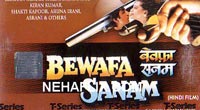
Do Qaidi Full HD Movie Download
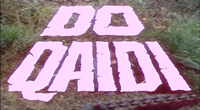
The Boss - Of The Underworld Full HD Movie Download
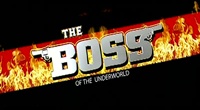
Khwahish Full HD Movie Download

Meri Jung Full HD Movie Download

Apna Hath Jagannath Full HD Movie Download

Resham Ki Dori Full HD Movie Download
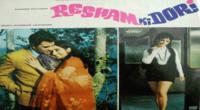
Hum Se Badhkar Kaun:The Entertainer Full HD Movie Download
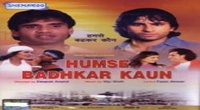
Dil-E-Nadan (1982) Full HD Movie Download
.jpg)
Slum Bala Full HD Movie Download
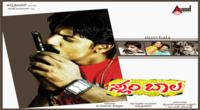
Nai Rat Nai Bat Full HD Movie Download

Valentines Night (2012) Full HD Movie Download
.jpg)
Chandipriya Full HD Movie Download
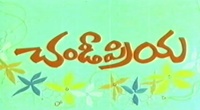
Chuttalunnaru Jagratta Full HD Movie Download
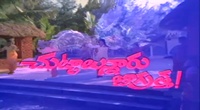
Anandha Ragam Full HD Movie Download

Police Commissioner Full HD Movie Download
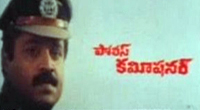
Mandupatara Full HD Movie Download
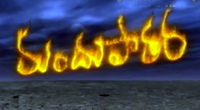
Muddhai Full HD Movie Download

Alibaba Adbutha Deepam Full HD Movie Download
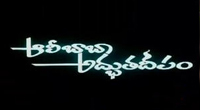
Bachna Ae Haseeno Full HD Movie Download

Veer Zaara Full HD Movie Download
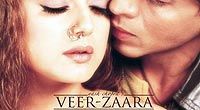
Download latest Movie from bollywood
- 1> baaghi 3
- 2> THE SKY IS PINK MOVIE FULL STORY AND REVIEW
- 3> Luka Chuppi
- 4> TO ALL THE BOYS I’VE LOVED BEFORE
- 5> Kabir Singh
- 6> Street Dancer 3D
- 7> Simmba
- 8> Gone Girl
- 9> The Girl Who Lived
- 10> Ludo
- 11> DILWALE DULHANIA LE JAYENGE
- 12> GUILTY
- 13> The Godfather
- 14> Adventures of Rusty
- 15> Sooryavanshi
- 16> Satyameva Jayate 2
- 17> Thappad
- 18> Bhool Bhulaiyaa 2
- 19> KGFChapter 2
- 20> Mardaani 2
- 21> Pinjar
- 22> Shivaji maharaj
- 23> Ek Villian 2
- 24> Hungama 2
- 25> Divergent
- 26> Mumbai Saga
- 27> The Internship
- 28> HIT (telugu)
- 29> Panga
- 30> The perfect date
- 31> 16 December
- 32> Gopala Gopala (Telugu)
- 33> Brahmastra
- 34> Gangubai Kathiawadi
- 35> Manmadhudu
- 36> Nenu local
- 37> Mahanati
- 38> Shatamanam bavathi
- 39> Lagaan
- 40> After
- 41> MOM
- 42> Shamshera
- 43> Raguvaran BTech
- 44> Khakee
- 45> The villain
- 46> OM
- 47> Mr. perfect
- 48> Bueatifull mind
- 49> Hichki
- 50> Gabbar Singh
- 51> Jogi
- 52> Before Sunrise
- 53> Before Sunset
- 54> Before Midnight
- 55> The Big Bull
- 56> Top Gun: Maverick
- 57> The Purge
- 58> The Sky is Pink
- 59> Laxmmi Bomb
- 60> Sadak 2
- 61> Sufna
- 62> Prithviraj
- 63> PK
- 64> Coolie No 1(2020)
- 65> Black Widow
- 66> Dear Zindagi
- 67> Dil Bechara
- 68> PHIR HERA PHERI
- 69> WAR
- 70> Dostana
- 71> RRR: Roudram Ranam Rudhiram
- 72> Maidan
- 73> Dabbang 3
- 74> Chhalaang
- 75> life as we know it
- 76> SherShaah
- 77> Sandeep Aur Pinky Faraar
- 78> Event Horizon
- 79> 83
- 80> Radhe: Your Most Wanted Bhai
- 81> Gunjan Saxena: The Kargil Girl
- 82> Mr India
- 83> Vivah
- 84> Anokha Bandhan
- 85> Ghost
- 86> Bhoot: Part One - The Haunted Ship
- 87> Haseen Dilruba
- 88> Laal Singh Chaddha
- 89> Qismat
- 90> Rajput
- 91> Drive
- 92> Dil Chahta Hai
- 93> Dil Ki Baazi
- 94> Dil Ka Rishta
- 95> Teesri Manzil
- 96> Dil
- 97> Love Aaj Kal
- 98> Khaali Peeli
- 99> Bunty Aur Babli 2
- 100> Atrangi Re
- 101> Gulabo Sitabo
- 102> Jodi
- 103> Suraj Pe Mangal Bhari
- 104> Deewana
- 105> Attack
- 106> Sardar Udham Singh
- 107> Toofan
- 108> THE LOVEBIRDS
- 109> Jersey
- 110> Ginny Weds Sunny
- 111> Thalaivi
- 112> Shiddat
- 113> Angels vs Zombies
- 114> Koi Mil Gya
- 115> Thank God
- 116> Bhuj: The Pride of India
- 117> Hum Aapke Hain Kaun
- 118> The Platform
- 119> Bird Box
- 120> Roohi Afzana
- 121> Torbaaz
- 122> Nikamma
- 123> World War Z
- 124> Extraction
- 125> Train to Busan
- 126> Life of Pi
- 127> SHAADI MEIN JROOR AANA
- 128> Himmat Aur Mehnat
- 129> To All The Boys: P.S. I Still Love You
- 130> Mimi
- 131> Good Newwz
- 132> Shubh Mangal Zyada Saavdhan
- 133> Raabta
- 134> Harry Potter and the Philosopher's Stone
- 135> Harry Potter and the Chamber of Secrets
- 136> Chhapaak
- 137> War of the Worlds
- 138> Harry Potter and the Prisoner of Azkaban
- 139> Harry Potter and the Goblet of Fire
- 140> MURDER MYSTERY
- 141> Shakuntala Devi
- 142> Bachchan Pandey
- 143> Jayeshbhai Jordar
- 144> Sheer Qorma
- 145> Saina
- 146> 'O' Pushpa I hate tears
- 147> Kedarnath
- 148> MS Dhoni The Untold Story
- 149> Chhichhore
- 150> Badhaai Ho
- 151> Unstoppable
- 152> Oz the Great And Powerful
- 153> The Girl on the Train
- 154> Haathi Mere Saathi 2020
- 155> The Conjuring: The Devil Made Me Do It
- 156> Gandhi Se Pehle Gandhi
- 157> The Song of Scorpions
- 158> Srimanthudu
- 159> Hello Guru Prema Kosame
- 160> Beauty and The Beast
- 161> Black Panther
- 162> Charlie and the Chocolate Factory
- 163> Bole Chudiyan
- 164> Fidaa
- 165> Duvvada Jagannadham
- 166> Bruce Lee: The Fighter
- 167> Hyper
- 168> Yaara
- 169> Red (2020)
- 170> Shivam
- 171> That Is Mahalakshmi
- 172> Nishabdham
- 173> Aashram 2020 web series
- 174> Laxmii
- 175> Mismatched
- 176> STUDENT OF THE YEAR 2
- 177> NAIL POLISH
- 178> Ramprasad Ki Tehrvi
- 179> KAAGAZ
- 180> 12 o Clock
- 181> The Power
- 182> bolo hau
- 183> Tribhanga
- 184> JAMUN
- 185> Madam Chief Minister
- 186> Maasaab
- 187> Aadhaar
- 188> Tanhaji
- 189> Bhaagi 3
- 190> Bhootnath
- 191> MALANG
- 192> Jai Mummy Di
- 193> Haathi Mere Saathi 2021
- 194> Shakeela
- 195> Unpaused
- 196> Annayya
- 197> Vamsoddharakudu
- 198> Mrugaraju
- 199> Narasimha Naidu
- 200> Sankranti
- 201> Manasu Maata Vinadhu
- 202> Anjaane
- 203> Apaharan
- 204> Bachke Rehna Re Baba
- 205> Bewafaa
- 206> Roohi
- 207> Radhe
- 208> Zindagi Khoobsoorat Hai
- 209> Yeh Mohabbat Hai
- 210> Yeh Kya Ho Raha Hai?
- 211> The Tomorrow War
- 212> DehradunDiary
- 213> Meri Shaadi Karaoo
- 214> Matruu Ki Bijlee Ka Mandola
- 215> No One Killed Jesica
- 216> Aag Ka Goola
- 217> Eight Million Dollars
- 218> Three Hundred
- 219> Cats and Dog
- 220> Decoy
- 221> Gold Rush
- 222> You Have Got Mail
- 223> Final Destination three
- 224> Tofan
- 225> Jungle
Request for Download movie Jung
- Bollywood movies
- Latest Bollywood movies
- Download all bengali movies
- Download all bhojpuri movies
- Download all english movies
- Download all gujarati movies
- Download all hindi movies
- Download all kannada movies
- Download all malayalam movies
- Download all marathi movies
- Download all oriya movies
- Download all punjabi movies
- Download all tamil movies
- Download all telugu movies
- Bollywood action movies
- Bollywood adventure movies
- Bollywood animation movies
- Bollywood classical movies
- Bollywood comedy movies
- Bollywood crime movies
- Bollywood devotional movies
- Bollywood documentary movies
- Bollywood drama movies
- Bollywood family movies
- Bollywood fantasy movies
- Bollywood historical movies
- Bollywood history movies
- Bollywood horror movies
- Bollywood musical movies
- Bollywood mystery movies
- Bollywood mythological movies
- Bollywood patriotic movies
- Bollywood romance movies
- Bollywood romantic movies
- Bollywood sci-fi movies
- Bollywood social movies
- Bollywood spiritual movies
- Bollywood sports movies
- Bollywood suspense movies
- Bollywood thriller movies
- Bollywood war movies
- Hot actress list
- Hot gujarati actress list
- Hot tamil actress list
- Hot bhojpuri actress list
- Hot assam actress list
- Hot bihari actress list
- Hot jammu and kashmir actress list
- Hot gujarati actress list
- Hot haryana actress list
- Hot konkani actress list
- Hot marathi actress list
- Hot odia actress list
- Hot punjabi actress list
- Hot rajasthani actress list
- Hot kannada actress list
- Hot malayalam actress list
- Hot telugu actress list
- Hot tulu actress list
- Hot Actress list from Indian city
- Hot actress list from ahmedabad
- Hot actress list from alappuzha
- Hot actress list from bangalore
- Hot actress list from bangalore
- Hot actress list from bhopal
- Hot actress list from chandigarh
- Hot actress list from chennai
- Hot actress list from guwahati
- Hot actress list from hyderabad, india
- Hot actress list from indore
- Hot actress list from jaipur
- Hot actress list from kannur
- Hot actress list from kochi
- Hot actress list from kolkata
- Hot actress list from kollam
- Hot actress list from kottayam
- Hot actress list from kozhikode
- Hot actress list from lucknow
- Hot actress list from madurai
- Hot actress list from mangalore
- Hot actress list from mumbai
- Hot actress list from mysore
- Hot actress list from new delhi
- Hot actress list from patna
- Hot actress list from pune
- Hot actress list from thiruvananthapuram
- Hot actress list from thrissur
- Hot actress list from tiruchirappalli
- Hot actress list from vijayawada
- Hot actress list from visakhapatnam
- All Bollywood Movies
- Bollywood Celeb
- >Art Director
- >Audiography
- >Background Music
- >Banner
- >Choreographer
- >Cinematographer
- >Costume Designer
- >Dialogue Writer
- >Director
- >Distributor
- >Editor
- >Executive Producer
- >Hair Stylist
- >Lyricist
- >Music Director
- >Photographer
- >Playback Singers
- >Presenter
- >Producer
- >Production Company
- >Production Designer
- >Screenplay
- >Singer
- >Sound
- >Actor
- >Story Writer
- >Studio
- >Video Director
- >Miscellaneous
- >Publicity (pro)
- >Web Creator
- >Production Labs
- >Publicity Design
- >Publicity Stills
- >Writer
- >Miscellaneous Artists
- >Visual Effects
- >Reporter
- >Music Company
- >Shooting Studios
- >Picturised On
- >Line Producer
- >Co Producer
- >Asst Director
- >Casting Director
- >Cinematography
- >Choreography
- >Dialouge
- >Editing
- >Lyrics
- >Music
- >Story
- >Playback Singer Female
- >Playback Singer Male
- >Actor In A Comic Role (male/female)
- >Child Artiste
- >Ensemble Cast
- >Actor Popular Choice (male)
- >Actor Popular Choice (female)
- >Sa Re Ga Ma Pa Song Of The Year
- >Actor In Supporting Role
- >Actress In Supporting Role
- >Actor In Leading Role
- >Art Direction
- >Actress In Leading Role
- >Sound Recording
- >Costume Design
- >Special Effects
- >Action
- >Actor In A Negative Role
- >Lifetime Achievement Award
- >Cinematic Exellence (director)
- >Cinematic Exellence (male)
- >Cinematic Exellence (female)
- >International Male Icon
- >International Female Icon
- >Actor In A Supporting Role (male)
- >Actor In A Supporting Role (female)
- >Actor In A Comic Role
- >Playback Singer (male)
- >Playback Singer (female)
- >Most Promising Debut (female)
- >Most Promising Debut (male)
- >Most Promising Director
- >Sound Design
- >Lifetime Jodi
- >Marketed Film
- >Jury Award For Best Actor
- >Jury Award For Best Actress
- >Jury Award For Best Film
- >Jury Award For Best Director
- >Playback Singer(male)
- >Lifetime Acheivement Award (male)
- >Excellence Award
- >Jodi Award
- >Performer Of The Year
- >Presented By
